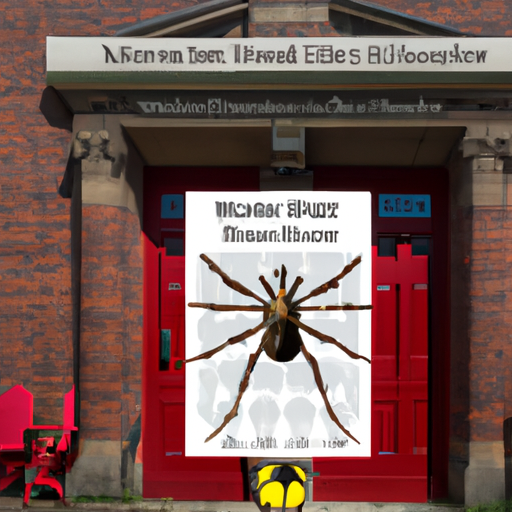Harvard University bestowed the prestigious Ig Nobel Prizes to a diverse array of projects, including a smart toilet that captures biological data, and a team who successfully reanimated dead spiders. Yes, you read that correctly, apparently being awarded for excellence in research isn’t the same as actually finding a cure for cancer or coming up with a practical solution to climate change. Let’s take a closer look at these groundbreaking endeavors.
First up, we have the smart toilet, designed to collect and analyze personal data. Because in this age of information and data harvesting, we all want to voluntarily submit our bathroom habits to some corporate algorithm, right? Apparently, this technological marvel comes equipped with an assortment of sensors that can monitor your urine and stool, all in an effort to provide you with vital health information. Who needs doctors or healthcare professionals when you have a toilet that tells you how you’re doing? Well, this reporter for one, would prefer to leave that decision up to an actual human being. We all deserve some privacy, especially when it comes to our bathroom routines.
Next, we have the team of scientists who brought reanimated robot spiders into existence. Haven’t we all been clamoring for this? Who wouldn’t want the ability to bring deceased arachnids back to life? Apparently, these researchers used a combination of chemicals and electricity to bring the spiders back from the dead. And for what, you may wonder? To find out more about how spiders move, of course. Because again, apparently this is what we need world-class scientists to spend their time on. Perhaps these scientists missed the memo that Halloween was already over, because creating zombie spiders feels like something straight out of a horror movie.
Now, let’s move on to some of the other winners of this year’s Ig Nobel Prizes. There was a study that showed that mushrooms are more likely to grow in a dark room with Nickelback music playing than without. While this may sound like something you’d find on a Buzzfeed article, apparently it’s now award-winning research. It’s always nice to know that Nickelback still has some value in this world, even if it’s just to help mushrooms grow.
Another notable winner was the team who worked out the mathematical formula for how much coffee a person can consume before experiencing heart palpitations. Because apparently, common sense and moderation are just too difficult to grasp without an actual calculation. But hey, at least now you can justify that tenth cup of coffee to yourself with scientific evidence, right?
In conclusion, the Ig Nobel Prizes once again delivered some truly remarkable advancements in the field of sarcastic research. From smart toilets to zombie spiders, and everything in between, these projects prove that you don’t need to achieve anything practical or groundbreaking to win an award. Perhaps next year, they’ll award a prize for the best way to procrastinate at work or the most creative way to avoid folding laundry. But until then, the winners of this year’s Ig Nobel Prizes can enjoy their well-deserved recognition for research that will undoubtedly change the world. Just maybe not in the way we were hoping for.


